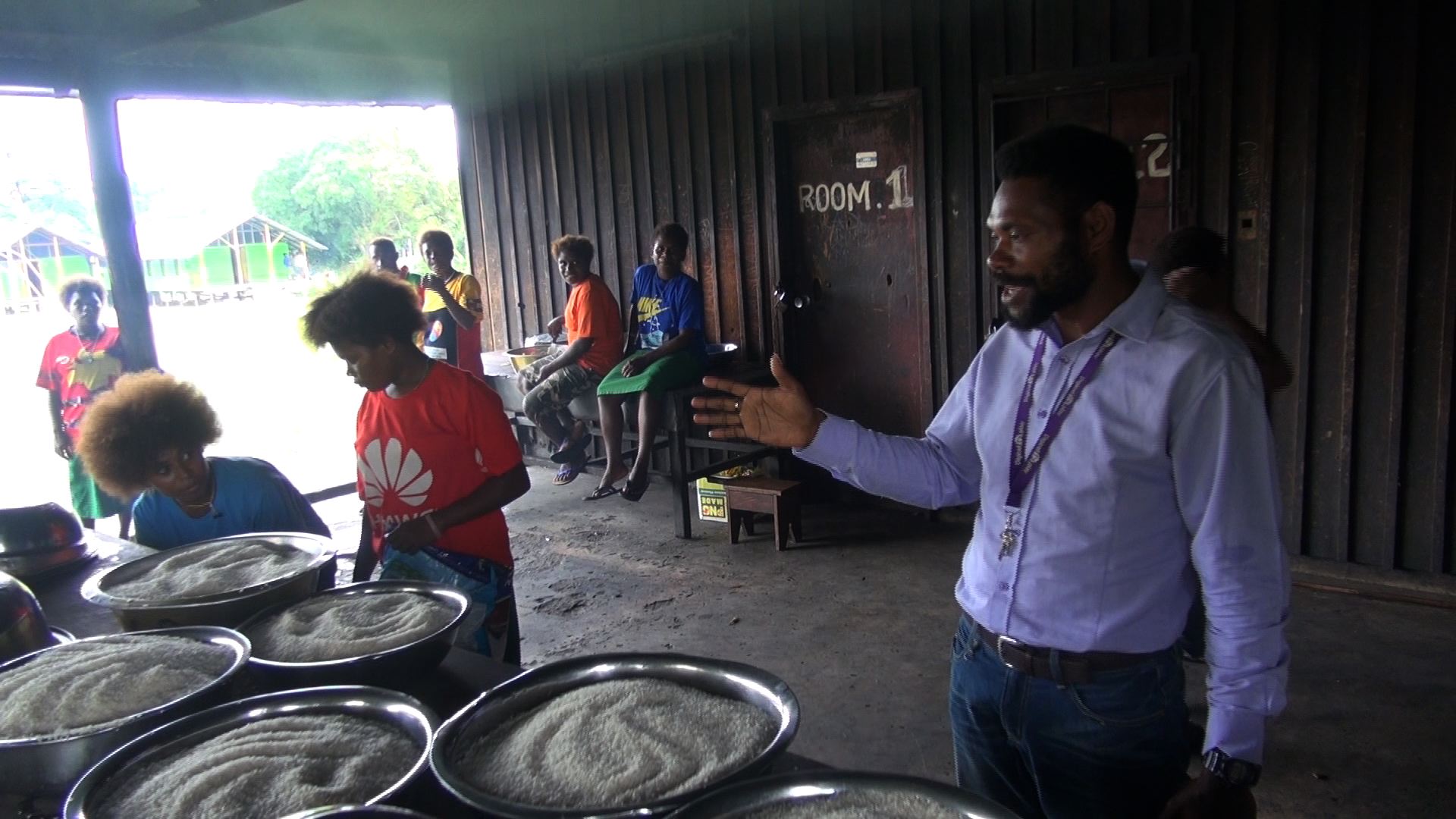It’s 5pm and dinner is being prepared for about 900 students at the Palmalmal Secondary School.
For each meal, 40 kilograms of rice is cooked. Food rations and fuel make up a large portion of the school’s annual expenses.
With rising costs and the shortage of funds, the School Administration has reduced the size of meal portions per student – a decision that many have come to accept.
Ludwick Kambukia a senior teacher at Palmalmal Secondary says this year will be difficult.
“Last year, we didn’t get the full portion of the TFF. For rural school like Palmalmal, we spend a lot on fuel and freight. When we don’t have government funds paid on time, it makes it very difficult for us.”
Palmalmal Secondary used to be largely self-sufficient. Its operations were sustained by revenue generated by the school and fees paid by parents.
But since the Government introduced the Tuition Fee-Free Education policy, the delays in TFF payments have adversely affected the school’s operations.
Last year, the final portion of the TFF was not paid. At the beginning of 2018, the School decided to charge K1,000 for school fees. Without the fees, the school would not be able to operate.
The late payment of the TFF money has also forced the school to obtain food rations on credit. It currently owes more than K120,000 to a local trade store for food rations.
Last year, they made the decision to close early because they were unable to operate.
Like many other schools in the country, Palmalmal is one of the many schools defying the government directive not to charge fees because it does not make sense to wait for TFF funds that are not paid on time.
School administrators know that while the Education Minister’s political statements issued out of Waigani look good on paper, it does not work for them.


